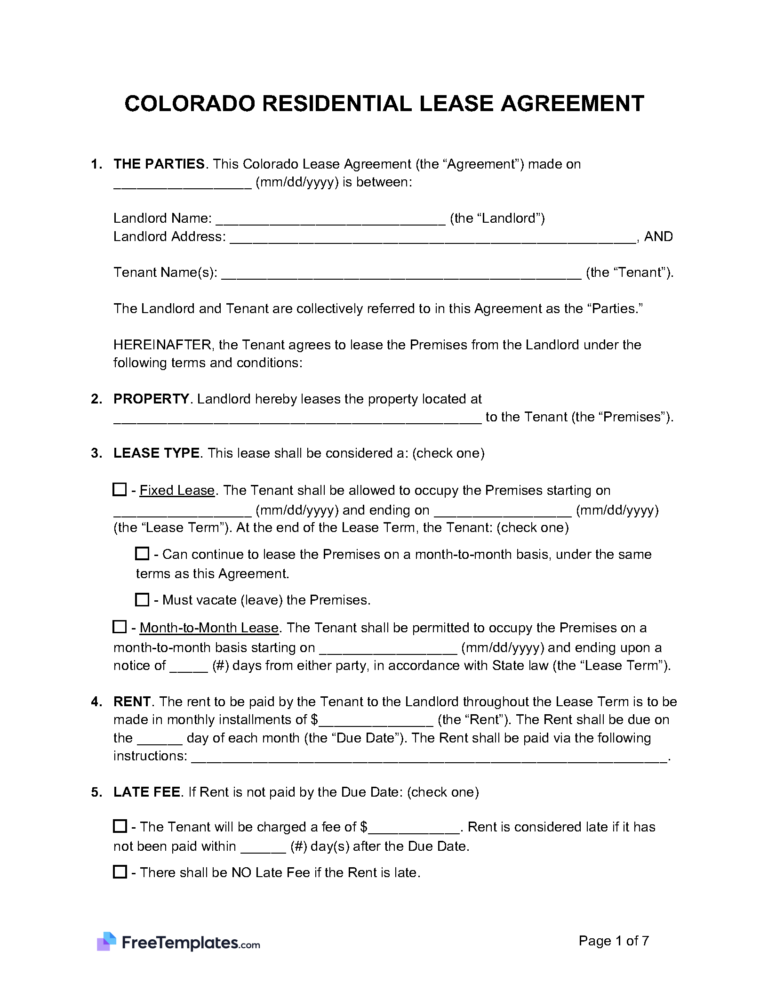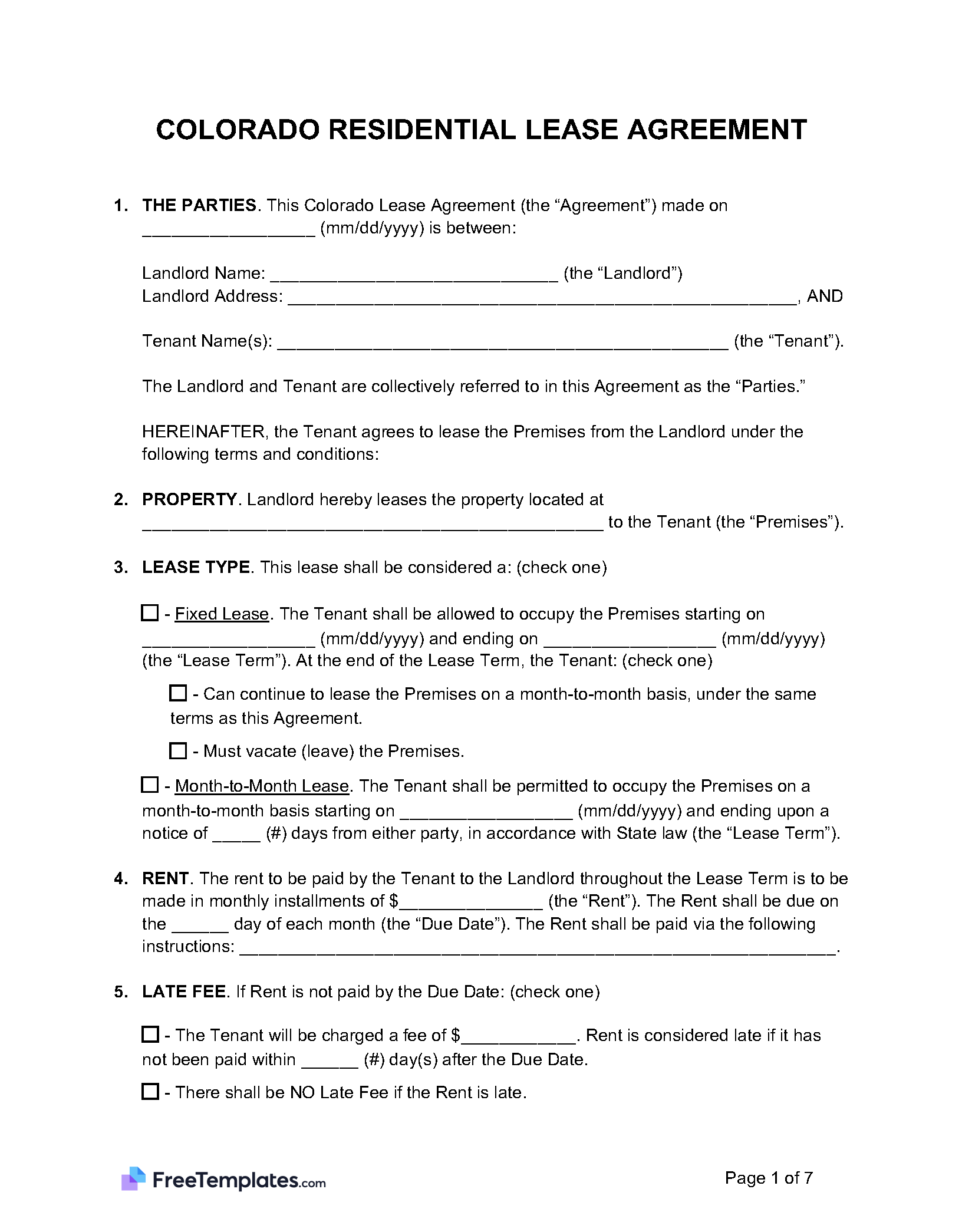By Type (6)
| Standard Lease Agreement – A legally binding document that outlines the terms and conditions of renting a residential property. The contract must follow state landlord-tenant laws. A standard lease agreement is typically 12 months long. |
| Commercial Lease Agreement – A contract between a landlord and a business tenant. The legally binding document specifies the terms and conditions of renting a commercial property. |
| Month-to-Month Lease Agreement – A flexible and short-term rental contract. It automatically news each month between the landlord and a tenant. |
| Rent-to-Own Agreement – A legal document between a landlord and a tenant. It outlines the tenant’s eventual rental property purchase terms and conditions. Typically, a portion of the rental payments will go toward the purchase. |
| Roommate Agreement – A contract between individuals sharing a rental property, outlining each person’s rights and responsibilities, providing clarity and protection. |
| Sublease Agreement – A contract in which a current tenant rents out all or part of the rented property to another person. The new person is considered the sublessee, and they are subject to the original lease terms. |
Disclosures (4)
Bed Bug Disclosure – Upon asking, a Colorado landlord must disclose the most recent inspection date and confirm the property is free of bed bugs within the last 8 months. (C.R.S § 38-12-1005)
Lead-Based Paint Disclosure – If the property was built before 1978, Landlords must inform tenants about the dangers of lead-based paint and disclose whether there is any lead-based paint in the rental.
Mold Disclosure – Landlords must disclose any known mold hazards in the rental property and provide information on how to report mold issues. (C.R.S. § 38-12-503(2.2))
Warranty of Habitability Disclosure – The landlord is deemed to warrant that the residential premises are fit for human habitation. (C.R.S. § 38-12-503(1))
Security Deposit
Maximum Amount – There is no limit set on security deposits in Colorado.
Returning to Tenant – Unless the lease specifies a longer period, up to 60 days, landlords must return a tenant’s full security deposit within one month after the lease ends or the tenant surrenders the premises. The deposit cannot be withheld for normal wear and tear on the property. (C.R.S. § 38-12-103(1))
Keeping the Security Deposit – The landlord can keep the deposit for reasons such as nonpayment of rent, abandonment, or unpaid utilities or repairs. (C.R.S. § 38-12-103(1))
- Is an itemized List required? – If any portion of the security deposit is retained, the landlord must provide a written statement detailing the reasons and refund the difference. This statement and any payment must be mailed to the tenant’s last known address. (C.R.S. § 38-12-103(1))
Landlord Access
General Access – There are no state requirements in Colorado, but landlords should provide reasonable notice to tenants before entering the rental unit, except in cases of emergency. This notice should typically be at least 24 hours, and entry should be during reasonable hours.
Paying Rent
Grace Period – Colorado does not have a state-mandated forgiveness period for paying rent. However, the lease agreement may specify rent due dates and any applicable grace periods, which are typically five days.
Maximum Late Fee – Colorado state law does not mandate a specific limit on a late fee for overdue rent. While the landlord can charge a late fee, it must be reasonable and specified in the lease.
Returned Checks (NSF) – If a rent payment is returned for insufficient funds, landlords can charge a returned check fee, but it must also be reasonable and specified in the lease.
Reasons for Eviction (3)
Non-Payment of Rent – Landlords can start eviction if rent is not paid within a specified grace period, as outlined in the lease agreement. The landlord must give written notice to the tenant, which can either be delivered in person or by mail. After the tenant receives the notice, they have 10 days to pay the rent or move out of the property. However, if the property is commercial or employer-provided, the notice period is 3 days. For certain residential agreements, the notice period is 5 days. (C.R.S § 13-40-104(D))
Non-Compliance – Violating lease terms, such as a no-pets policy, or causing damage to the property can also lead to eviction. The landlord must give the tenant a 10-day notice to fix any issues or move out (a “Demand for Compliance or Right to Possession notice”). The landlord can start an eviction lawsuit if the tenant does not fix the problem within 10 days. Landlords with certain exempt residential agreements can give a shorter notice of 5 days. (C.R.S. § 13-40-104(E))
Illegal Activity – Tenants can be evicted for “substantial violation” activities in or near the rental property, including common areas. The landlord can file an eviction lawsuit if the tenant does not leave the unit within 3 days. (C.R.S. § 13-40-107.5)

